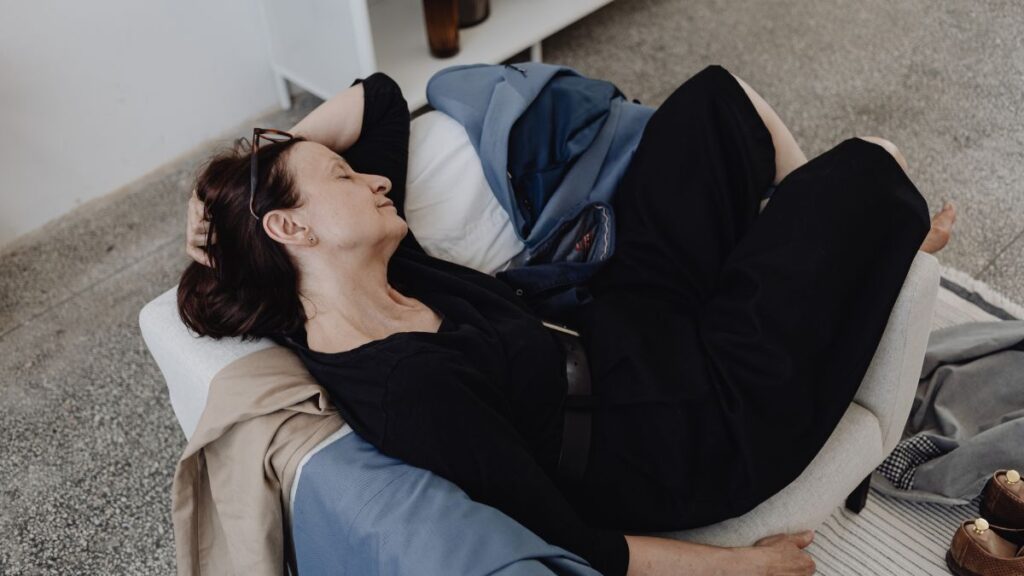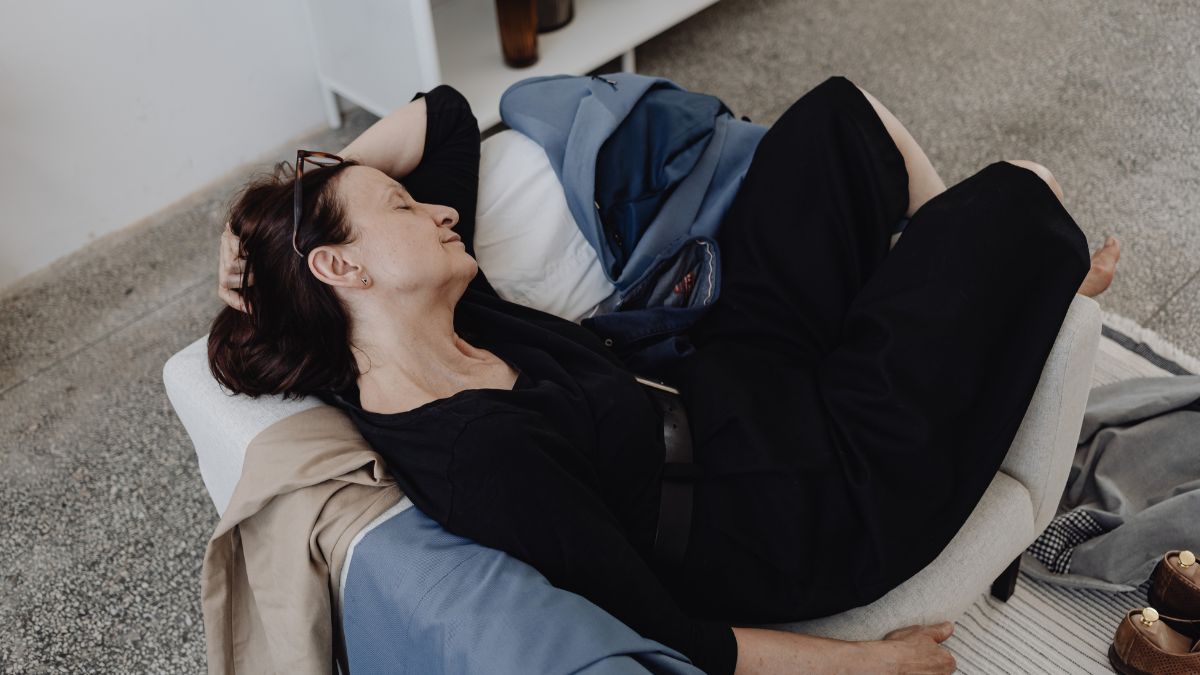
😩 You Slept All Night—So Why Are You Still Exhausted?
You go to bed on time. You get 8 hours. You even skip the midnight scrolling.
But still, you wake up foggy, drained, and dragging yourself through the morning.
What gives?
If you’re wondering why you wake up tired even after 8 hours, you’re not alone.
Sleep quantity is only part of the equation. The quality, timing, and what happens before and during your sleep all matter just as much.
Let’s break down the real reasons your rest isn’t restoring you—and how to finally wake up energized.
🧠 1. Your Sleep Cycles Are Being Interrupted
Getting 8 hours of sleep doesn’t guarantee you’re moving through the essential sleep stages your body needs:
- Light Sleep: easy to wake from
- Deep Sleep: physical recovery, immune support
- REM Sleep: emotional processing, memory, creativity
Waking up during a deep or REM stage (instead of at the end of a cycle) leaves you groggy—no matter how long you slept.
Try this: Use sleep tracking apps or a wearable device to understand when you’re waking up and if your cycles are being disrupted.
🌙 2. You’re Not Getting Enough Deep Sleep or REM
Deep sleep and REM are where the real healing happens.
Here’s what can disrupt them:
- Alcohol or heavy meals before bed
- Blue light exposure at night
- Late-night stress or overthinking
- Caffeine too close to bedtime
Even if you’re in bed for 8 hours, poor habits can block the most restorative stages of sleep, leaving your brain undercharged and your body unrefreshed.
🛏️ 3. Your Sleep Environment Is Working Against You
Where and how you sleep matter more than you think.
An overstimulating sleep space can keep your nervous system activated all night.
Watch out for:
- Noise (even small background sounds)
- Light pollution from windows or devices
- A too-warm room (ideal temp = 60–67°F)
- An uncomfortable mattress or pillow
You may be unconscious, but your body is not relaxed.
And without physical relaxation, your sleep can’t truly restore you.
ALSO READ: Insomnia, Anxiety & The Hidden War in Your Nervous System – psychmyth
🧬 4. You Might Have Hidden Sleep Disorders
If you’re sleeping long enough but still waking up tired, it’s worth checking for conditions like:
- Sleep Apnea: You stop breathing momentarily through the night, reducing oxygen levels and interrupting deep sleep (common and often undiagnosed).
- Restless Leg Syndrome: Involuntary leg movements that prevent deep sleep.
- Upper Airway Resistance Syndrome: Less severe than sleep apnea, but still disruptive to sleep quality.
Talk to a doctor or sleep specialist if you’re consistently exhausted despite getting full nights of sleep.
🧘 5. Your Nervous System Is Stuck in Survival Mode
Stress doesn’t always show up as anxiety—it can show up as shallow breathing, tight muscles, or racing thoughts during sleep.
Your body might be sleeping, but your nervous system is still in hypervigilance mode.
This leads to:
- Light, fragmented sleep
- Night sweats
- Vivid, emotionally charged dreams
- Waking up feeling unrested
Solution: Try calming your system before bed. Breathwork, gentle yoga, journaling, or a warm bath can help your body feel safe enough to fully rest.
ALSO READ: Safe Sleep for the Overstimulated Nervous System – psychmyth
🧃 6. What You Eat (and When) Affects Sleep Quality
Nutrition plays a big role in how well you sleep.
Watch out for:
- Caffeine after 2 PM (even decaf contains traces)
- Sugary or high-carb meals late at night
- Alcohol before bed (it may help you fall asleep, but reduces REM)
Better sleep-supporting options:
- Complex carbs + healthy fats 2–3 hours before bed
- Herbal teas (chamomile, lemon balm, valerian root)
- Magnesium-rich foods (dark chocolate, spinach, almonds)
Eat to help your body rest, not fight digestion all night.
ALSO READ: Food Isn’t Just Fuel—It’s Information for Your Body – psychmyth
🌤 7. Your Morning Routine Might Be Messing You Up
Waking up tired can also be a sign of a poorly timed or inconsistent wake-up routine.
If you’re:
- Snoozing your alarm multiple times
- Waking up in the dark without sunlight
- Skipping hydration first thing
- Reaching for caffeine before water
You’re likely compounding your morning grogginess.
Instead, try this:
- Wake up at the same time daily (yes, weekends too)
- Get sunlight exposure within 30 minutes of waking
- Drink a glass of water before coffee
- Do light movement or stretching
These cues reset your circadian rhythm and help signal: “The day has begun.”
✨ Final Thoughts: Sleep Smart, Not Just Long
If you’re waking up tired even after 8 hours, it’s not just about sleep quantity.
It’s about the depth, the rhythm, the timing, and the environment you’re sleeping in.
Your body is trying to recharge. But it can only do that if you:
- Calm your system
- Protect your cycles
- Honor your recovery
Sleep isn’t just rest. It’s restoration.
And you deserve to wake up feeling alive, not just less tired.

